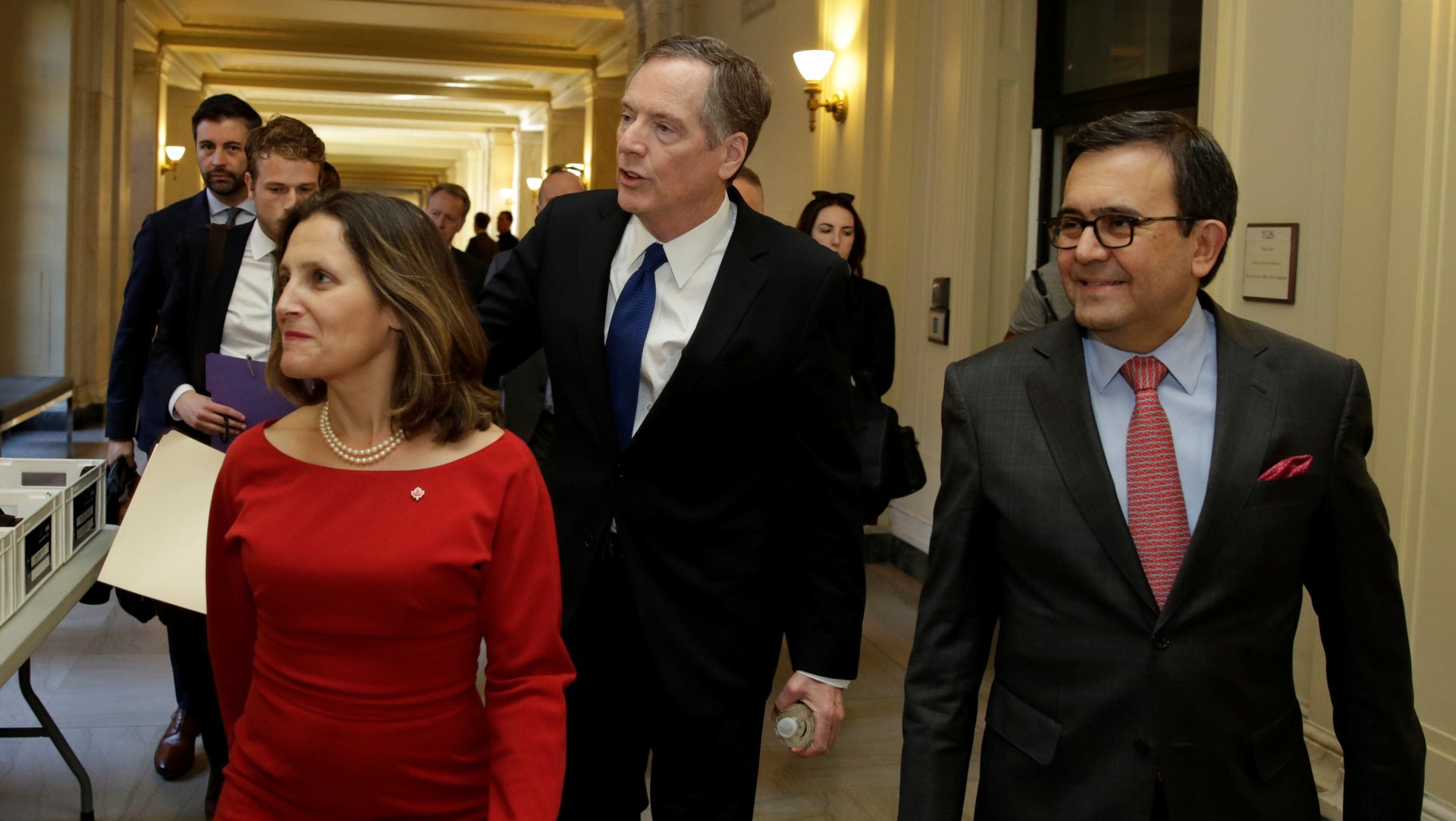The North American Free Trade Agreement is at an impasse because the US is tired of free trade
Talks to revamp the North American Free Trade Agreement (Nafta) have survived their fourth round—barely.


Talks to revamp the North American Free Trade Agreement (Nafta) have survived their fourth round—barely.
The latest meeting between the US, Mexico, and Canada, which held in Virginia Oct. 11-17, ended at an impasse on the basic notion of what a revised version of the 23-year-old agreement should achieve. Canada and Mexico stand by the idea of free trade; the US wants to make it less free, saying that its partners to the north and to the south are benefitting more than the US through access to its huge market.
Based on the comments of the countries’ top negotiators after the talks, it’s hard to imagine how the gap can be bridged when they resume talks on Nov. 17, in Mexico City. “We have seen no indication that our partners are willing to make any changes that will result in a rebalancing and a reduction in these huge trade deficits,” said US trade representative Robert Lighthizer. Canadian foreign affairs minister Chrystia Freeland said the US’s proposals would “turn back the clock on 23 years of predictability, openness, and collaboration,” and Mexico’s economy minister, Ildefonso Guajardo, warned, “We must understand that we all have limits.”
The US’s main goal in the renegotiation is to reduce its trade deficit. It doesn’t want manufacturers in Canada or Mexico that produce solely to export to the US, Lighthizer said, nor will it support American companies that invest in those countries with the purpose of shipping back whatever they make back to the US. In other words, he wants the US to buy less from Canada and Mexico.
To achieve that, he essentially proposes displacing Canadian and Mexican products with American versions. The US negotiators want products that are tariff-free under Nafta to include more US-made parts and materials. They also want to do away with dispute-resolution mechanisms that currently limit how the US can retaliate against its trading partners—by raising tariffs, for example. And they have proposed adding a “sunset clause” under which Nafta would have to be re-approved every five years or die.
Not reaching an agreement, however, might be even less palatable to the Trump administration than Nafta as it stands, Guajardo warned. It’s not just Mexico and Canada that stand to lose. American manufacturers and their workers, as well as farmers, also depend heavily on Nafta trade. “Despite our current differences, we must ensure that decisions we make today do not come back to haunt us tomorrow,” he said.